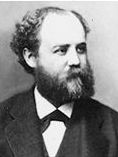Agaricus [Agar]
Angular choreic movements, like Mygale, but a a distinctive symptom, we have itching of the eyelids or of different parts of the body as if they had been frost bitten. The eyelids are in constant motion. The spine is sensitive to touch.
Actaea Racemosa [Cimic]
It is to be employed, when the movements affects chiefly the left side and when the disease is associated with Myalgia or rheumatic ailments, or occurs reflexly as a result of uterine displacements.
Arsenicum [Ars]
It is very useful in stubborn cases. There is uneasiness in the legs, the patient must change the position of his feet all the time or walk about for relief.
Belladonna [Bell]
Bodily inquietude-but is distinguished by the intensity of the symptoms, and it has violent congestion, throbbing of the carotids, wild look, dilated pupils and injected eyes. The patient is obliged to move to and fro, esp. to move the hands and feet; he cannot stay long in any predominant jerking is backwards, although this may alternate with a forward bending. There is boring of the head into the pillow [Tarant-rubbing against the pillow]. It has also constrictions, hyperaesthesia, Mania, with laughing, dancing, wild crying, etc.
Causticum [Caust]
It is indicated, when the right side of the body is affected more than the left. The muscles of the face, tongue, arms and legs are all involved in disorderly movements. When the patient attempts to speak, words seem to be jerked out of the mouth. The patient is anxious and restless in bed at night. He is compelled to sit up and change his position. He involuntarily throws the head about and finally falls asleep exhausted. During sleep the arms and legs are constantly “on the go”.
Crocus [Croc]
Hysteric state, together with choreic symptoms. Jumping, dancing, laughing, desire to kiss everybody and contractions of single groups of muscles.
Hyoscyamus [Hyos]
It is indicated in patients who are very weak, with tottering gait. They seem to have abnormal impressions of distances. They reach for something that seems to be within their grasp, when, in reality it is on the other side of the room. It has well-marked local jerkings and twitchings of groups of muscles.
Ignatia [Ign]
It is called for in Chorea of emotional origin.
Moschus [Mosch]
Suited to the nervous patients. Fidgetiness of the legs, at times preventing sleep. Tremulousness of the whole body.
Mygale [Mygal]
It is one of our best remedies for uncomplicated cases of Cholera. Angular choreic movements [Agaricus]. The patient is apt to be low-spirited and depressed. Control over the muscles is lost. She has constant twitchings of the muscles of the face: also twitchings and jerkings of one arm and one leg, usually the right. The mouth and eyes open and close in rapid succession. On attempting to put the hand up to the head, it is violently jerked backward. When an effort to talk is made, the words are jerked out.
I can recall a case in which, under the use of this remedy, the convulsive symptoms were speedily removed, and the patient, a little girl, remained well for several years.
Fingers move involuntarily; trembling of the limbs; muscular jerks; awkward; she drops things.
Natrum Mur [Nat-m]
Esp. suited to Chorea, from remote consequences of fright. The patient is sad and tearful.
Phosphorous [Phos]
Suited to cases originating from loss of animal fluids-as blood, semen or milk, or too frequent childbearing. There is weakness of the limbs, with trembling, on beginning to walk. The patient stumbles a great deal, catching his toes in every little projection of the floor or pavement. He totters, and there seems to be imperfect co-ordination.
It may be used very successfully in Chorea, when it occurs in children who are growing too fast. The patient is very weak and walks as if paralyzed.
Sepia [Sep]
Sudden jerking of the head backward and forward; twisting pain in the stomach rising to the throat.
It has, in a few instances, relieved the choreic symptoms.
Stramonium [Stram]
It is a remedy to be thought of in Chorea, particularly if the brain is affected. The Stramonium-Chorea is characterized by the following symptoms:
Features continually changing: now he laughs an now appears astonished; tongue protrudes rapidly; head thrown alternately backward and forward; spasmodic twitching of the spine and whole body; the extremities are in constant motion, though not always jerked, for sometimes their motion is rotatory, gyratory, even graceful. The muscles of the whole body are in constant motion. There may be stammering. If the mind is affected, the patient is easily frightened; he awakes from sleep, as if terrified, if child, with a scream; or he often assumes an attitude of prayer, with fervent expression and clasped hands. He frequently lifts his head from the pillow.
Tarentula [Tarent]
It is indicated in Chorea affecting the right arm and the right leg. The movements persist even at night.
Veratrum Viride [Verat-v]
It is particularly indicated, when, in addition to the choreic twitching, there is violent congestion of the nerve-centres and the pulse is much over-excited.
Given in a low potency, it relieves the congestion and therefore the nervous disturbances.
Zincum [Zinc]
It may be indicated in Chorea caused by fright or suppressed eruptions, esp. when the general health suffers very much. There are great depression of spirits and irritability. Moving of the feet for hours after retiring, even continuing in sleep.
Zizia Aurea [Ziz]
Restless, choreic movements worse during sleep, its most marked characteristic.


